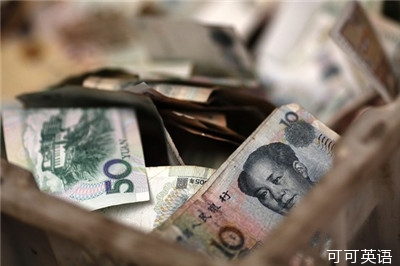
Over the last two weeks, several major investment houses have published reports exploring the idea of a hard economic landing in China. They include 'We don't expect it to happen' caveats.
过去两周,几家大型投资机构陆续发布报告,对中国经济硬着陆的假设进行了探究。报告附加了“我们并不期望此事发生”的说明。
But what if it did happen? Would the rest of the world tank as well?
但如果中国经济真的出现硬着陆了呢?全球其他地方是否会随之一同跌落?
A catalyst for this concern has been the end of America's easy-money policies, which buoyed emerging-market economies. The gradual end of the Fed credit flood has sparked concerns that developing countries with high fiscal and trade deficits, excess credit growth, currency risks and other problems could face a liquidity crisis, leading to a broad loss of confidence.
引发对中国经济硬着陆担忧的一个因素是美国退出宽松货币政策。该政策对新兴市场经济体构成支撑,但随着美国联邦储备委员会(Federal Reserve, 简称:美联储)逐步退出宽松货币政策,人们开始担心那些存在高财政赤字、高贸易逆差、信贷增长过快、货币风险等问题的发展中国家将面临流动性风险,进而导致市场信心大范围受挫。
Among the countries investors worry most about are those hit by political uncertainty, such as Venezuela, Argentina and Turkey. Also on the radar are economies with structural concerns including India, Brazil, Indonesia and South Africa.
在这些发展中国家中,投资者最为担心的是像委内瑞拉、阿根廷、土耳其这类受政治不稳定因素干扰的国家,以及像印度、巴西、印尼和南非这样存在结构性问题的经济体。
China is different, as its leaders are fond of pointing out. It's got huge foreign currency reserves, still-strong economic growth -- GDP slowed slightly to 7.7% on-year in the fourth quarter, from 7.8% in the third -- and it posted 10.6% on-year export growth in January.
正如中国领导人所乐于指出的那样,中国与上述国家情况不同。中国拥有巨额外汇储备,经济增长依旧强劲(去年第四季度中国的国内生产总值(GDP)同比增长7.7%,较三季度的7.8%略有放缓),且1月份中国出口额同比增长了10.6%。
But that hasn't stopped some investors from seeing the worst, given the Asian giant's extensive links with other emerging markets, credit and debt concerns and the possibility of some internal crisis.
但考虑到中国与其他新兴市场有关广泛的联系,而且该国信贷和债务情况也令人担忧,再加上中国存在爆发内部危机的可能性,一些投资者还是难免要预测一下最糟糕的情况。
'Given that China is the largest emerging economy in the world and has contributed more than 25% to global GDP growth since 2010, a sharp slowdown or deleveraging in China will likely affect everyone and every market,' UBS said in its 'How Might a China Hard Landing Affect the World' report.
瑞士银行(UBS AG, UBS)在其报告《中国经济硬着陆或将如何影响世界》(How Might a China Hard Landing Affect the World)中称:鉴于中国是全球最大的新兴经济体,且自2010年以来对全球GDP增长的贡献率超过25%,中国经济增速的大幅下滑或大幅去杠杆化将对所有人和所有市场产生影响。
Societe Generale, in its 'What if China Lands Hard' report, predicts that in a worst-case scenario non-performing loan rates could hit 19%, interest-rate spreads could reach 800 basis points, gold prices could rise and then tank, and earnings at manufacturing companies could drop 50%. Keep that hard hat handy, Chicken Little.
法国兴业银行(Societe Generale)在其报告《若中国经济硬着陆》(What if China Lands Hard)中预测,最差的情况是不良贷款率飙升至19%、利率差扩大至800个基点、金价先涨后跌、制造企业的利润下降50%。若情况真如此骇人,可得做好随时应对的准备。
Drawing on a poll of investors across Asia, Societe Generale outlined several triggers in China it believes could set off a loss of confidence. These include the seizing-up of credit markets, a bank run or a default -- whether the failure of a corporate bond, a 'wealth management product' issued to investors or one of the lightly regulated trust companies that populate China's 'shadow banking' system.
法国兴业银行根据对亚洲各地投资者进行的调查,列出了其认为在中国会引发市场信心丧失的几大因素。其中包括信贷市场失灵、银行遭挤兑或违约。这既包括企业债券、向投资者发行的 “财富管理产品”违约,也包括那些大量存在于中国“影子银行”系统中,且极少受到监管的信托公司出现的违约。
Another perceived risk is a policy misstep by regulators trying to tighten liquidity, address hadow banking problems or restrict local-government borrowing, which could set off the very crisis the government is trying to prevent.
还有一个可预见的风险是,监管部门在试图收紧流动性、解决影子银行问题或限制地方政府借贷时出现政策失误,这可能会引发恰恰是政府力图避免的危机。
On Wednesday, in its own report on China's slowdown, ING warned investors to be prepared for a crisis or two in emerging markets as countries that banked on breakneck Chinese growth confront a new reality.
荷兰国际集团(ING)在周三发布的一份关于中国经济增速放缓的报告中警告称,投资者需要对新兴市场可能出现的一两场经济危机作好准备,因为依赖中国经济高速增长的国家都面临这一个新的现实。
'Some of the erstwhile winners may find adjustment difficult,' ING economist Tim Condon wrote -- though he said Asian economies don't appear particularly vulnerable as U.S. monetary policy remains accommodative.
荷兰国际集团的经济学家康登(Tim Condon)称,部分昔日的赢家可能会发现难以做出调整,不过他表示,似乎亚洲经济体并不是特别的脆弱,因为美国货币政策保持宽松。
UBS sees three areas where a hard landing in China could affect the rest of the world. The biggest and most obvious is through the nation's trade ties. Not surprisingly, major commodity exporters and China's neighbors are most vulnerable on this count, especially Mongolia, Taiwan, Australia, South Korea, Japan and Southeast Asia.
瑞银预计中国经济硬着陆对全球其他地区的影响将体现在三个领域。影响最大也是最明显的将是通过该国贸易纽带所产生的影响。并不令人惊讶的是,主要大宗商品出口国以及中国周边国家和地区最容易在这方面受到冲击,尤其是蒙古国、台湾、澳大利亚、韩国、日本及东南亚地区。
A Bank of America Merrill Lynch survey of fund managers found the biggest perceived risk to international markets was a hard landing in China that triggers a collapse in commodities prices. The proportion of fund managers fingering China as a risk rose to 46% in February, up from 37% in January and 26% in December.
美银美林(Bank of America Merrill Lynch)对基金经理进行的一项调查发现,国际市场能预料到的最大风险是中国经济硬着陆引发大宗商品价格暴跌。2月份将中国经济前景作为一个风险因素的基金经理占比升至46%,高于1月份的37%和去年12月份的26%。
Financial links are a second area of potential vulnerability. These are much less extensive than China's trade links, UBS believes, in large part because Beijing still tightly controls capital flows.
第二个潜在威胁是中国经济硬着陆可能通过金融纽带影响其他地区。但瑞银认为,中国与全球其他地区的金融联系并不像该国的贸易纽带那样广泛,这主要是因为中国政府仍然严格控制资本流动。
According to the Bank for International Settlements, foreign banks are exposed to Chinese entities to the tune of $700 billion in foreign currency, less than 5% of Chinese banks' domestic credit and around 18% of China's official foreign reserves. That said, some economies are more exposed: Hong Kong and Singapore have the most to lose.
根据国际清算银行(Bank for International Settlements)的数据,海外银行针对中国实体面临的外汇风险敞口共计7,000亿美元,不到中国银行业国内信贷总量的5%,大约相当于中国官方外汇储备的18%。不过,部分经济体可能更明显地暴露在中国经济硬着陆可能带来的风险中:香港和新加坡损失可能最为惨重。
The third way that a hard landing in China would affect the world is through market contagion, when a loss of confidence spreads with unforeseen consequences. The Asian financial crisis in 1997, sparked by seemingly inconsequential devaluations in Thailand and the Philippines, drew in economies with supposedly sound fundamentals, including Singapore and Hong Kong.
中国经济硬着陆将对全球产生影响的第三个方式是通过风险蔓延,即信心丧失的现象伴随着难以预料的后果蔓延。1997年爆发的亚洲金融危机就是由泰国和菲律宾表面上看起来无关紧要的货币贬值引发的,之后波及到新加坡和香港等原本基本面良好的经济体。
If nothing else, the recent concern underscores how important China has become as an economic engine and an emerging market extraordinaire, where even the hint of a problem is enough to jangle global nerves.
近期的市场忧虑至少凸显了中国作为一个经济引擎和强大的新兴市场国家,其地位已经变得多么重要,甚至中国经济可能出现问题的细微迹象就足以刺激全球神经。
'You often hear people say emerging markets are a worry,' UBS economist Tao Wang said. 'They could be bearish on China and bullish somewhere else. If you're really bearish on China, though, I'm not sure you can be bullish on anywhere else.'
瑞银经济学家汪涛说,经常可以听到人们说新兴市场令人担忧,他们可能不看好中国经济前景,但看好其他地区;但如果你真的不看好中国,我不确定你是否真的还能看好其他地区。


